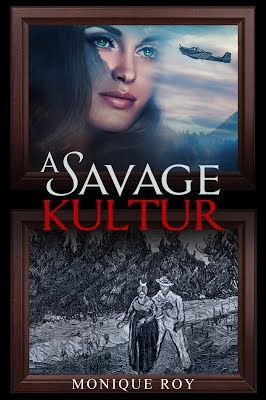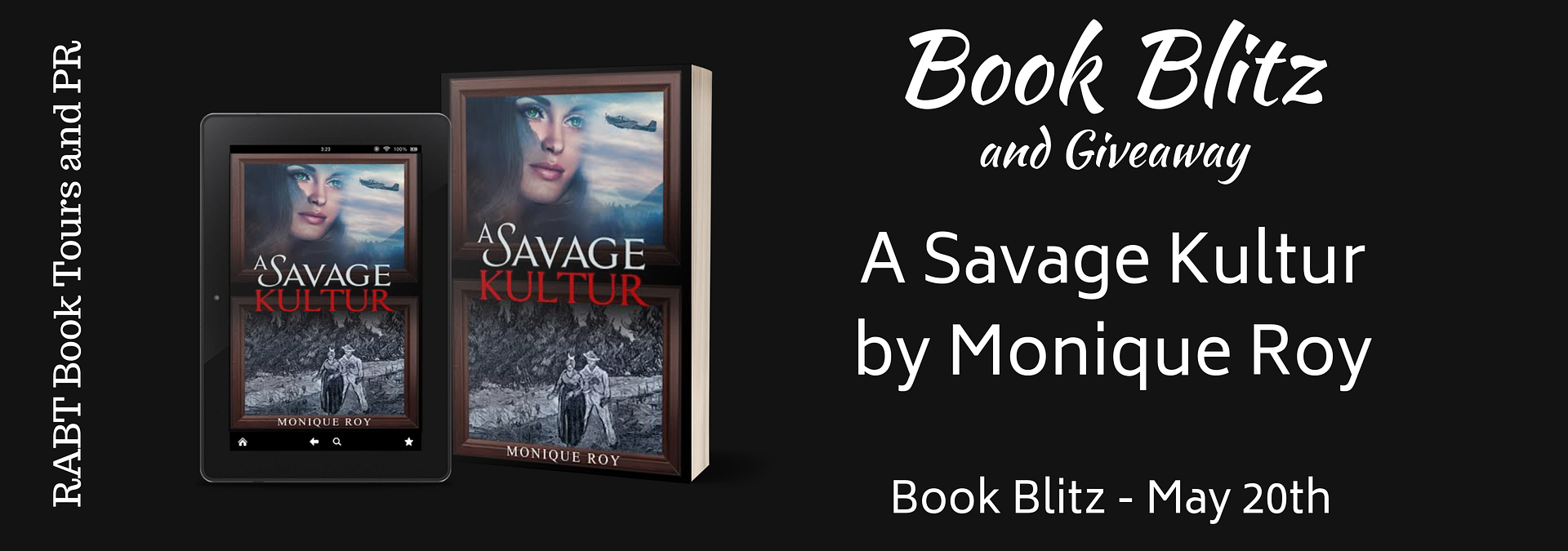
Historical
Fiction
Date
Published: May 1, 2019
In
Oxford, England, Ava, a Jewish art student at Oxford University, receives a
heart-wrenching letter from her grandfather after he dies. From the letter, she
learns that her grandfather has given her his London art gallery, which he says
will secure her future, as well as provide a place for her to grow her artistic
talents and follow her passion for art. The letter also describes his one last
wish—that she find a treasured Vincent van Gogh painting, The Lovers: The
Poet's Garden IV, that belonged to her grandparents and was deemed degenerate
and looted by the Nazis in 1937.
Arriving
for the first time at the gallery, she discovers old photographs in a secret
room that recount the harrowing past—a Nazi propaganda parade in 1937. She
quickly becomes aware that the room and the gallery, with an empty frame for
the missing van Gogh, hold such rich memories of her grandparents. As
conversations with her family members and those connected to the painting spur
memories, the book switches back and forth between the current timeline and the
timeline during the war to tell the stories of those affected by the painting
and its fate.
On
the train to her grandfather’s funeral, she meets Gordon Rose, an FBI agent,
disguised as an art restitution lawyer. He helps her track down the missing van
Gogh, while at the same time, he goes after an Neo-Nazi albino art forger named
Luther.
Ava
pays several visits to her grandmother, her only living relative who lived
through the war, hoping she remembers something about the past that will be a
clue to the missing painting and their lives in Germany during the war. It is
in these hours that she sits with her grandmother that she learns about her
grandparents finding refuge on an Austrian farm after they flee Munich and of
Charlotte, a local farm girl who lives at Lake Toplitz.
Ava’s
grandmother who struggles with dementia recalls Charlotte’s last name. With
this information, Ava tracks down Charlotte at her home at Lake Toplitz and
questions the old woman about what happened at the lake. On her last breath,
Charlotte speaks of the secrets hidden in the lake.
When
Gordon breaks into Luther’s Austrian hideout, he believes Luther has forged the
missing van Gogh painting. Luther claims it is the real deal. To right a wrong
and under the duress of Gordon and law enforcement, Luther returns the painting
to Ava.
Ava
takes the van Gogh painting to her grandmother. Still not sure if it's the real
thing or not, Ava wants to bring her grandmother closure during her last days.
Gordon wonders if they should call an art expert to examine the painting. She
believes it was meant to be there, whether real or fake. In the end, Gordon and
Ava reveal their true feelings for one another.
Excerpt
Ava stared at the envelope and then
at her mother.
“What do you mean by 'change my
life?'”
“Just open it, darling. I believe what’s
inside will shape your life in so many amazing ways.”
The
envelope was sealed close and Ava took the knife from the table and gently
passed it under the seal.
“I
have not read this letter,” Vivienne said. “This was left for your eyes only.”
Ava’s
heart began to pound in her chest. She pulled out a handwritten letter and a
gold key.
“A
key?” Ava asked, looking up at her mother.
“Read
the note, daughter.”
Hands
shaking, Ava opened the letter and began to read.
My
dearest Ava:
I
have wanted to give you this special key to a remarkable place—my gallery—for a
long time. Do you remember eight years ago when I sold the gallery? How very
sad I was, but I stayed with that decision because, at the time, it was the right
thing to do. It was a thorn in one’s side, to a degree, too much work and
responsibility for an old man like me. Then, your grandmother became ill and so
I sold the gallery. In an extraordinary circumstance, I was walking by the
gallery many months ago and I discovered it was for sale. The current owner had
fallen ill and no one in his family wanted the gallery. I stood in front of my
old gallery as I did the day I bought it 30 years ago. Tears in my eyes and a
flutter in my heart, I always knew that showplace was my destiny. Well, dear
Ava, I had to have it and so I bought the salon that very day. Now it is yours,
and while I am not there to see you flourish and grow in the most special of
places, I know you will thrive in that gallery, as I did. You, my darling, are
the only person who can carry on this legacy. Art links us. It makes us human,
almost spiritual.
You
are truly unique and gifted with a beautiful mind and an extraordinary artistic
talent. You will be finished with school one of these days and now you have a
way to make a living and I know you can make this burgeon. Daunting…yes…but
always remember that I am always with you in your heart, an angel to guide you,
and keep in mind what I always said that nature has no straight lines. A Beech
tree does not grow straight and smooth, but twists, sprawls, and bulges. I have
always believed, and more and more towards the end of my life, that the
shortest distance to somewhere, to something, is never a straight line, instead
it is a curvy one, zigzagging in the course of life amid conflicting forces. A
very complex path; indeed, and the path you take will not be easy and
straightforward. It’s twisting and bumpy, but it offers the greatest
opportunity. Keep the gallery safe and make it vibrant. Give it a boost, and
make art thrive in this ever changing, complex world. Without art, the world
would be less bright, less beautiful. N'est-ce pas?
Listen
carefully now, granddaughter. I dislike speaking of the past, a grievous time I
buried deep inside the darkest cavities of my soul. The war caused your
grandmother and me a great amount of angst and suffering. I have never felt
terror like I did then, and I hope you never will. At night, I often would wake
in a cold sweat from awful, vivid dreams, and unfortunately, when I opened my
eyes, reality did not seem much better. We lived in a horrific world filled
with extreme hatred during the war. When it was all over, it was far easier to
close that part of me off and never speak of it again. These wounds don’t heal;
they are forever ingrained in my soul.
A
monster of the worst kind, Hitler’s greed was unlimited, his Nazi reign of
terror horrifying. As evil spread across Europe, I saw the death of humanity
and I witnessed a world where owners of great art exchanged their treasures for
their lives—the plunder of Europe was the greatest art theft in history. The
Nazis waged a cultural war on Europe’s Jewish community, and it is quite ironic
how ardent and persistent they were about collecting and preserving art works
as they went about completely ruining the lives of their Jewish owners. Art
became a symbol of status for the Nazi regime. Hitler’s pillaging armies
snatched countless pieces of valuable art off museum walls and from private
collections across Europe. Hitler wanted to create the greatest collection of
art in the world—a Führermuseum—his mission became stealing art from the rest
of the world. Of the 600,000 works of art looted during the Nazi era, tens of
thousands are still missing and unidentified. Amazing, isn’t it? Stealing art
is like stealing someone’s soul. This is the final unfinished business of the
war, and it will take the persistence and fortitude of your generation and
future generations to continue to locate pieces adrift in the teeming and complex
art world. My hope is that every piece the Nazis stole is found and returned to
their Jewish heirs. Justice must be sought, and you and others of your
generation and even those who come after you, must help to awaken the present
to realize the wrongs of the past.
The
events of the war are losing their immediacy; they are being shelved like any
other major event in the history of time. Questions about it will remain
probably forever and some will never have answers. The Jews of today have
inherited the obligation to provide future generations with information so they
can better understand the past for a better, more peaceful future. I only know
of and see the past, Ava, but you are the present. Going forward, you must help
right the wrongs of the past—a very dark and haunting time. I believe that an
understanding of the past and preserving the memory of the past, can bring an
understanding of the present and the future.
This is my last secret, my last wish: A great
family heirloom—a splendid painting by Vincent van Gogh, The Lovers: The Poet’s
Garden IV— was confiscated from our family by the Nazis in 1937. It was
declared “degenerate” and it has been missing ever since they took it in 1937.
Your great-grandfather, Joseph, bought the piece at an auction. As you can
imagine, it cost a large sum of money even then, and today, it is worth a great
sum of money.
After
the war, your grandmother and I put forth an immense effort and all of our
energy into rebuilding our lives and starting a family, rather than tracking
down lost art. We needed a break from the past and looking ahead at a brighter
future somehow helped us slowly forget the past and hide it away deep inside.
It was a time for us to heal and find peace, and a time to heal our saddened
souls. I could not speak of my experiences for a long time, and nor could your
grandmother, and until now, I did not want my experience with the past to
contaminate you in any way. Some things remain secrets because there isn’t
really a great way to tell them to the ones we love. It was meant to protect
you. Now I believe these secrets are crucial to your life and your identity.
I
have searched for this painting for quite some time, and now I must turn that
extraordinary task to you, Ava. Searching for lost art is very different today
than it was when I tried. Today, the internet is filled with articles about
looted art, as well as searchable databases to locate missing and looted art. So
many resources are now available to you. Ava, you have the energy and the
determination to seek what we lost. I hope this is not a burden, but a quest to
find something of tremendous value and beauty—just one of countless cultural
treasures that vanished without a trace. This painting is part of your heritage
and is something you can pass on to your children, and so forth.
There
is much to tell about this wonderful work of art—The Lovers: The Poet’s Garden
IV. I’ll begin with a letter the talented van Gogh wrote to his brother, Theo,
in October of 1888. He wrote a fabulous description: “Here is a very vague
sketch of my last canvas, a row of green cypresses against a pink sky with a
pale lemon crescent. The foreground is vague land and sand and some thistles.
Two lovers, the man in pale blue with a yellow hat, the woman with a pink
bodice and a black skirt.”
The
painting was completed in 1888 as an oil on canvas. In February of that same
year, van Gogh arrived in the southern Provencal town of Arles, France. With
the financial help and support of his brother, he moved into the Yellow House.
His bedroom overlooked Place Lamartine, a small public park. This lush oasis
provided much inspiration and joy for the artist. The Poet’s Garden IV was the
fourth work in a four-painting series as a decoration of linked pictures for
the guest bedroom Paul Gauguin would occupy in the Yellow House. Unfortunately,
sweet Ava, this house no longer exists as it was destroyed by bombs in the
1940s during World War II.
I
think this glorious painting expresses so many things, such as emotions of
mourning and loss and immortality. The garden’s vitality still lives somewhere
with someone who is probably undeserving of its infinite beauty and value; for
someone who steals art; therefore, steals its brilliance, its soul, its life.
Stolen art is a great theft to an individual, to society, and to the world.
Art
can make us feel small in the most beautiful way, the same way that man can
make us feel insignificant in the absolute worst way.
We
need more beauty in this world, Ava. Embrace this, my dear. Be determined,
courageous and steadfast in this journey and in all you do. It’s
transformative. Believe me. You are always up to a challenge, so why not this
one?
And
always remember that everything goes by like a dream, Ava…life can be fleeting,
so use your beautiful eyes to capture all the most precious moments…flashes in
your memory that create heartfelt moments. I love you ‘til the end of time and
beyond.
Follow
your heart and live your dreams.
Forever
yours,
Your
Dearest Poppy
Ava
read every word through tears. “Oh, Mother,” Ava whispered, her head in her
hands. “How beautiful.”
She
took deep breaths to stop herself from crying out. She would be stronger than
that, she told herself. He would want her to be stronger, to not break down.
Something in those words awakened her. With her eyes closed, she vowed from
within that with all the might and strength God could give her that she would
fight to recapture the priceless van Gogh painting her grandfather, and even
her great grandfather, admired and loved.
About the Author
About the Author

Monique's
passion for writing began as a young girl while penning stories in a journal.
Now she looks forward to deepening her passion by creating many unique stories
that do nothing less than intrigue her readers.
Monique
holds a degree in journalism from Southern Methodist University in Dallas. She
is the author of a middle-grade book Once Upon a Time in Venice, historical
fiction novel Across Great Divides, and historical fiction novel A Savage
Kultur.
Monique
was born in Cape Town, South Africa, and her grandparents were European Jews
who fled their home as Hitler rose to power. It’s their story that inspired her
to write Across Great Divides, her first historical novel.
Historical
fiction lets you escape to another time and place; and Monique likes to explore
the past so that we can potentially better understand the future.
Monique
resides in Dallas, Texas, with her husband and son. She also works as a
freelance writer.
Contact
Links
Purchase
Links

